freedom

Shermer and Law discuss: a brief history of Hong Kong • National Security Law • crimes of secession • how Asia’s most liberal city changed so fundamentally • how rights and freedoms are won or lost • the truth: what it is and who owns it • reform society from within • freedom of speech • freedom of the press • the enemies of dictators • why democracies are fragile.
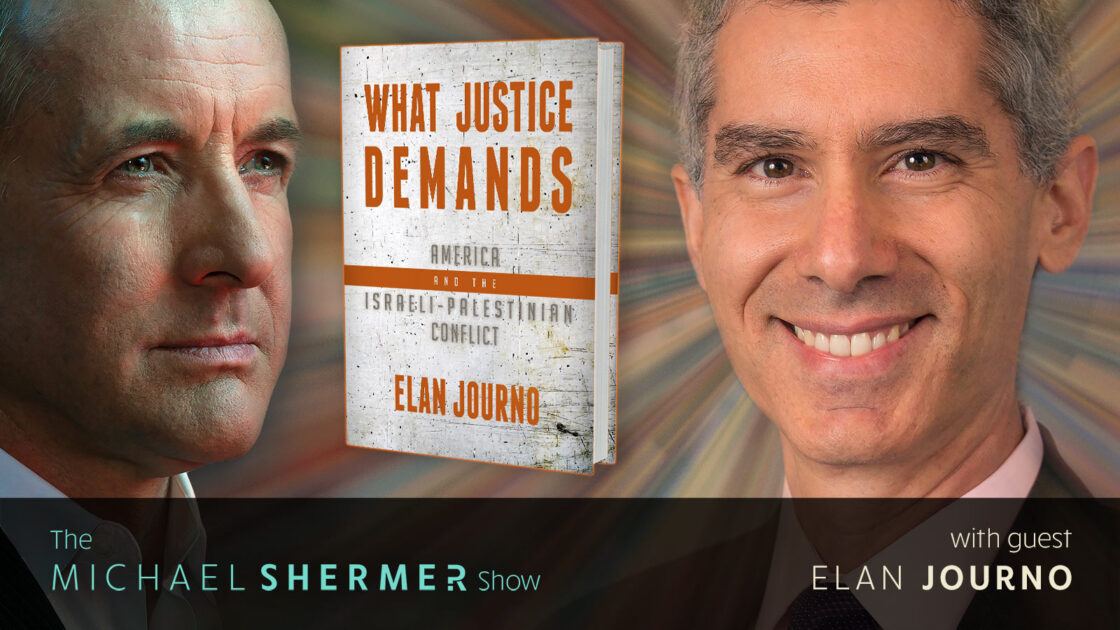
Shermer and Journo discuss: who really owns land? • British Mandate • Theodore Herzl • Zionism, Judaism, and Israel • territorial disputes • Hamas (Islamic Resistance Movement), Hezbollah (Party of God), and terrorism • Palestinian grievances • The Palestinian cause • Is Israel a colonial conquering empire? • Is Israel an apartheid state? • Boycott, Divestment, Sanctions (BDS) movement • Gender Apartheid • Arabs, Muslims, and Palestinians as separate identities • Palestinian Liberation Organization (PLO) • Islam and Islamism •…
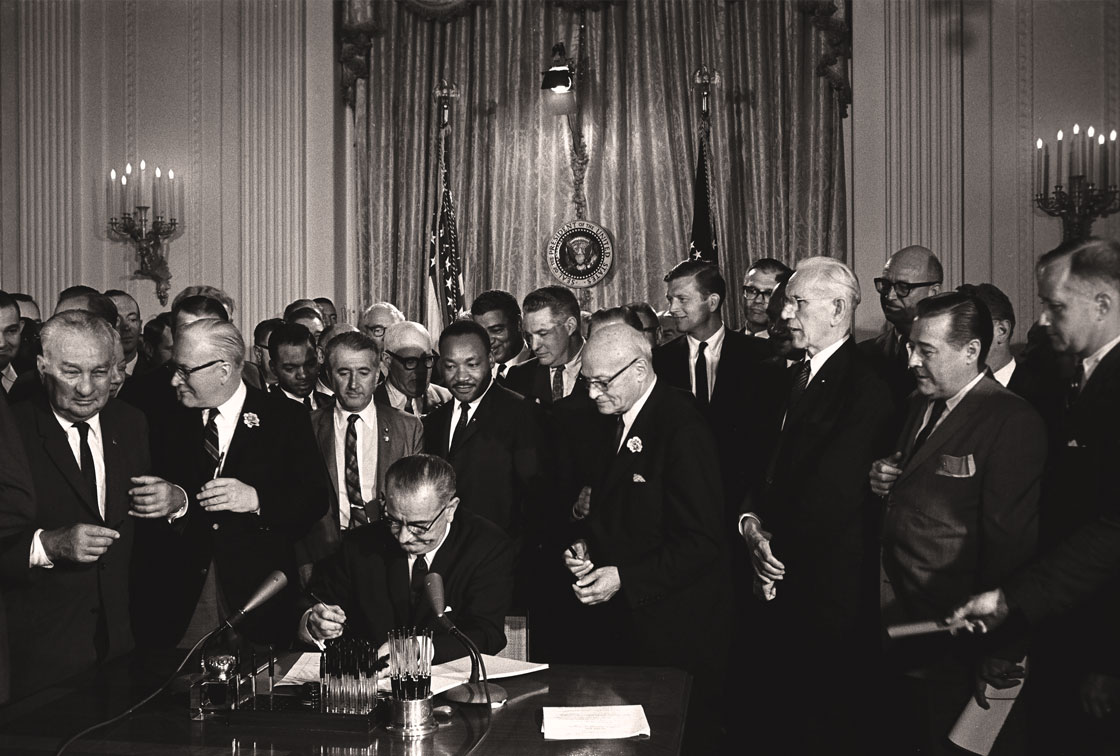
In this provocative article on the controversial topics reparations, and what is owed to the descendants of African Americans who were enslaved, Jason Hill argues that the Civil Rights movement and ensuing acts and laws in the 1960s and 1970s have already provided a type of reparations, and that more such reparations, particularly in the form of cash payments, are unnecessary, not to mention nearly impossible to determine who is owed what.
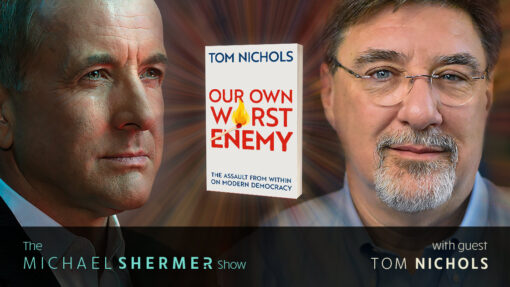
Democracy is in trouble. Why? In episode 214, Michael Shermer speaks with Tom Nichols about his book Our Own Worst Enemy: The Assault From Within on Modern Democracy challenges the current depictions of the rise of illiberal and anti-democratic movements in the United States and elsewhere, placing on the people themselves, the growth of unchecked narcissism, rising standards of living, global peace, and a resistance to change.
In episode 214, Michael Shermer speaks Tom Nichols about his book Our Own Worst Enemy: The Assault From Within on Modern Democracy. PLUS, don’t miss our digital subscription sale: $14.99 for 7 issues, until October 9, 2021!
In this special episode of the podcast Michael Shermer honors the 20th anniversary of 9/11 with a commentary on the truth about that event and how it changed our lives, 7 myths about terrorism that need debunking if we are to understand how we should respond to this threat, and why we need not sacrifice liberty for security.

In this special episode of the podcast Michael Shermer honors the 20th anniversary of 9/11 with a commentary on the truth about that event and how it changed our lives, 7 myths about terrorism that need debunking if we are to understand how we should respond to this threat, and why we need not sacrifice liberty for security.
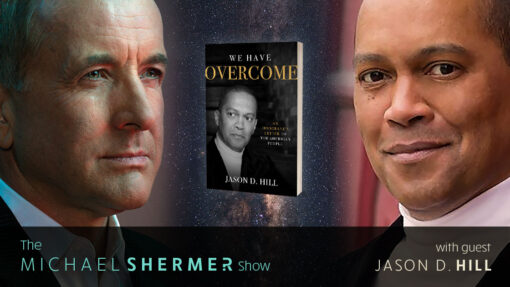
In episode 158 Michael Shermer speaks with Jason D. Hill, a black immigrant from Jamaica, about his eloquent appreciation of the American Dream, and why his adopted nation remains the most noble experiment in enabling the pursuit of happiness.
In episode 158 Michael Shermer speaks with Jason D. Hill, a black immigrant from Jamaica, about his eloquent appreciation of the American Dream, and why his adopted nation remains the most noble experiment in enabling the pursuit of happiness. PLUS: In the 7th CUPES report, we ask: across the political spectrum, how knowledgeable are people when it comes to the available data on fatal police shootings of Black Americans?
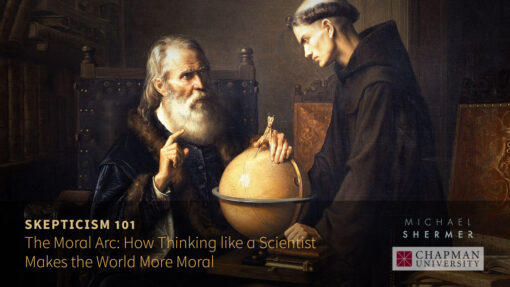
In this, the final lecture of his Chapman University Skepticism 101 course, Dr. Michael Shermer pulls back to take a bigger picture look at what science and reason have done for humanity in the realm of moral progress. Watch The Moral Arc: How Thinking Like a Scientist Makes the World More Moral.
In this, the final lecture of his Chapman University Skepticism 101 course, Dr. Michael Shermer pulls back to take a bigger picture look at what science and reason have done for humanity in the realm of moral progress. Watch The Moral Arc: How Thinking Like a Scientist Makes the World More Moral.
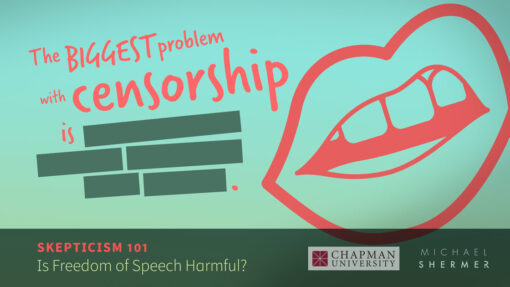
In this lecture, Dr. Michael Shermer addresses the growing crisis of free speech in college and culture at large, triggered as it was by the title lecture, which he was tasked to deliver to students at California State University, Fullerton, after a campus paroxysm erupted over Taco Tuesday.
In this lecture, Dr. Michael Shermer addresses the growing crisis of free speech in college and culture at large, triggered as it was by the title lecture, which he was tasked to deliver to students at California State University, Fullerton, after a campus paroxysm erupted over Taco Tuesday.
In Science Salon # 114, Michael Shermer speaks with Katherine Stewart about her new book The Power Worshippers: Inside the Dangerous Rise of Religious Nationalism. PLUS: Frank S. Robinson reviews The Tyranny of Virtue: Identity, The Academy, and the Hunt for Political Heresies by Robert Boyers.
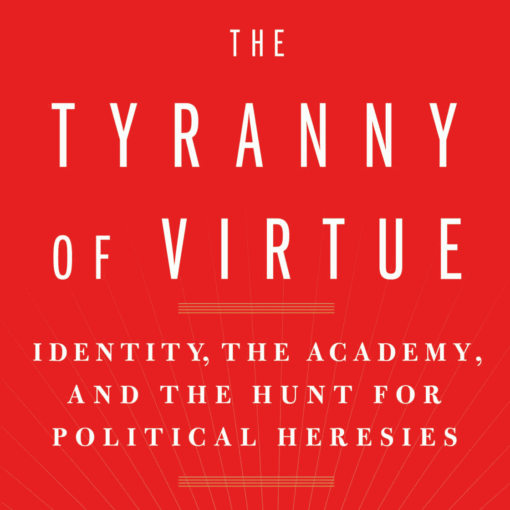
Frank S. Robinson reviews The Tyranny of Virtue: Identity, The Academy, and the Hunt for Political Heresies by Robert Boyers.
Dr. Raymond Barglow discusses three mistaken approaches to the opioid epidemic in this article that appeared in Skeptic magazine 24.1 (2019). Plus, Michael Shermer dialogues On Freedom with New York Times bestselling author Cass Sunstein.
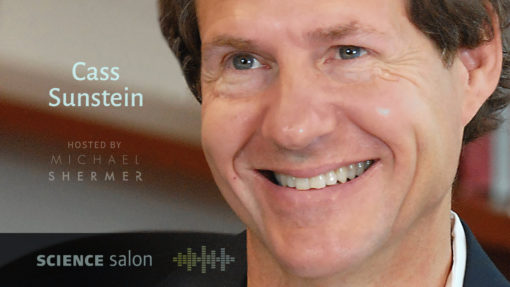
Cass Sunstein asks us to rethink freedom. He shows that freedom of choice isn’t nearly enough. Drawing on perspectives from the humanities, religion, and the arts, as well as social science and the law, Sunstein explores a crucial dimension of the human condition that philosophers and economists have long missed — and shows what it would take to make freedom real.


















